#Concept Art Orchestra
Explore tagged Tumblr posts
Text
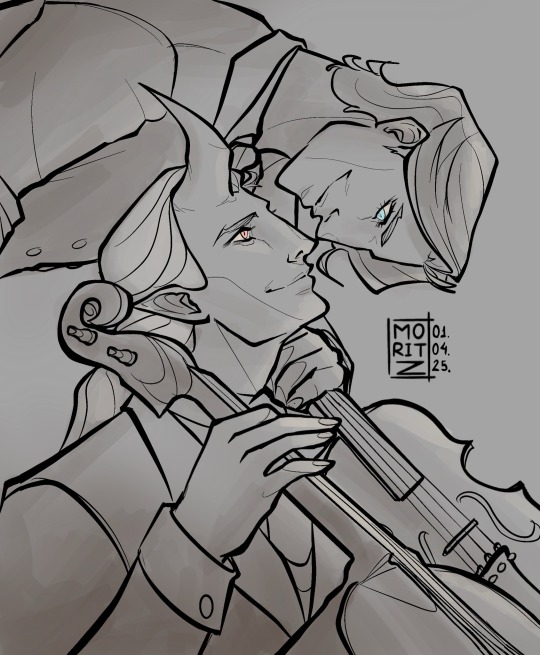
I HAD TO OKAY
I had to do this aprils fool trend with my babies and I never drew so fast before colapsing on my bed. Ill probably color it today and post it later.
#digital art#digital artist#art#artists on tumblr#digital illustration#artist#character design#dnd npc#dnd tiefling#dnd oc#dnd campaign#dnd art#bookish#bookish art#sketches#ttrpg character#character concept#character art#dnd5e#character artist#musical gays#orchestra gays#classic gays#bards#dnd bard#bard#my gays
10 notes
·
View notes
Text
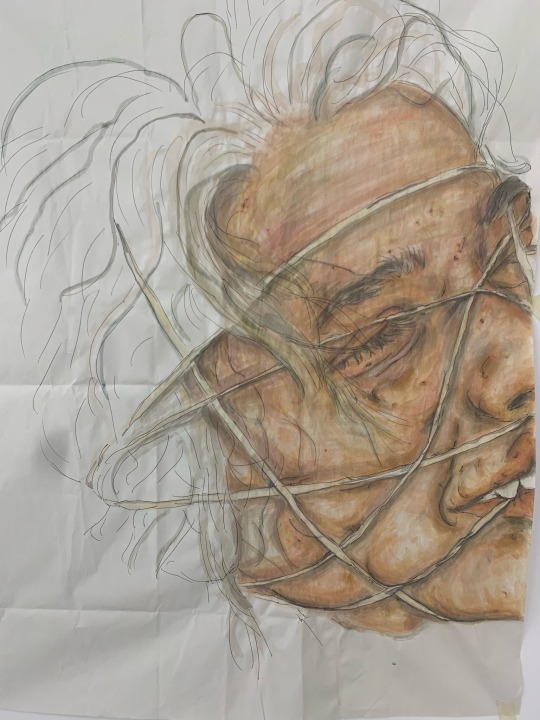
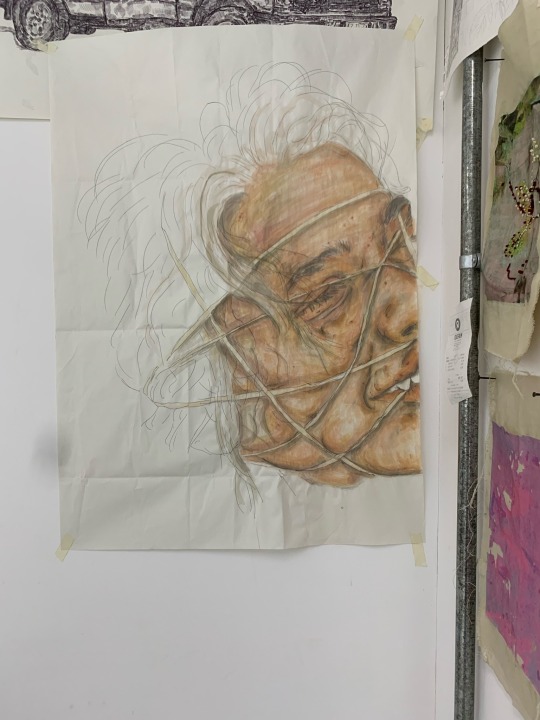
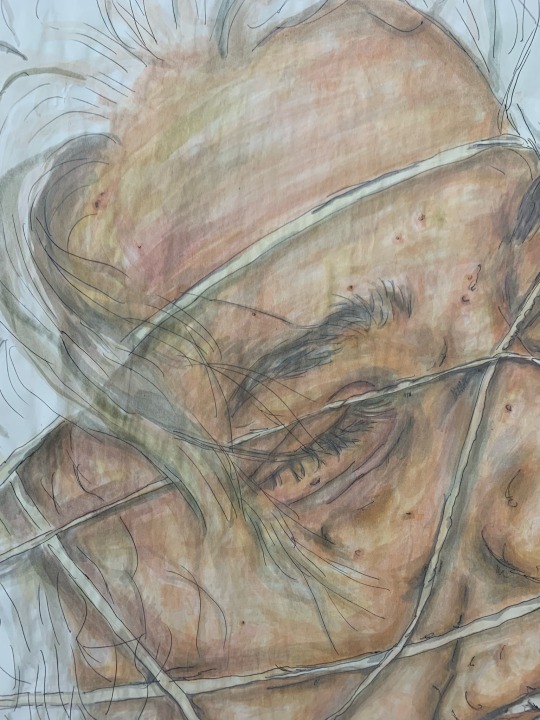
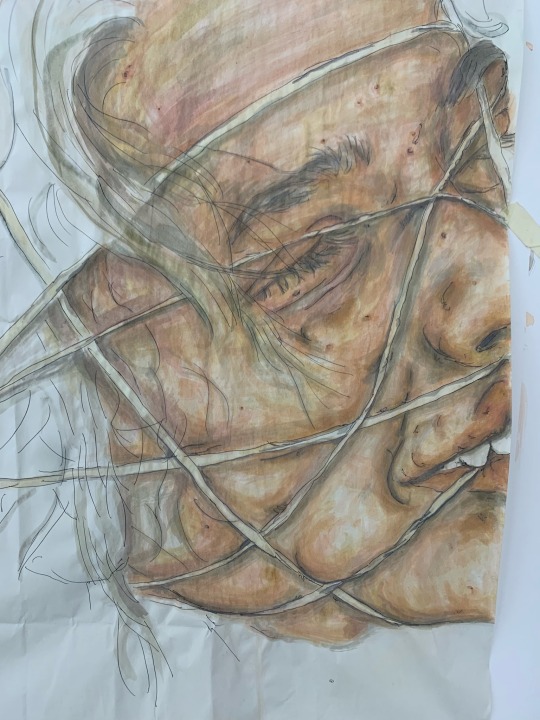
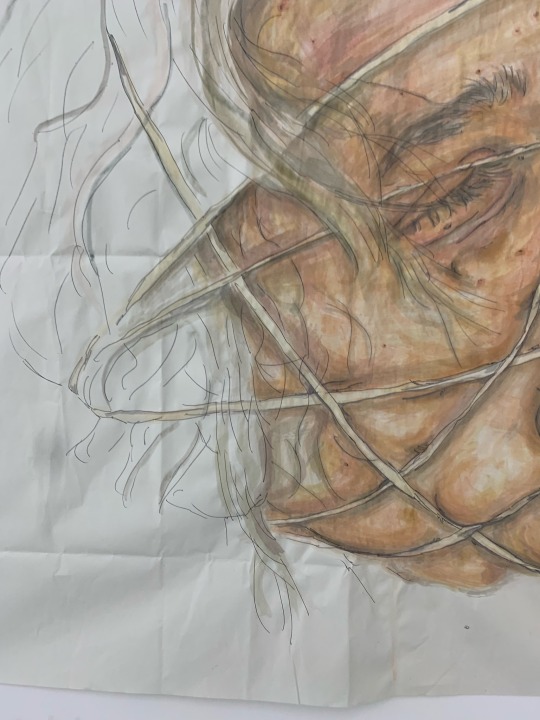
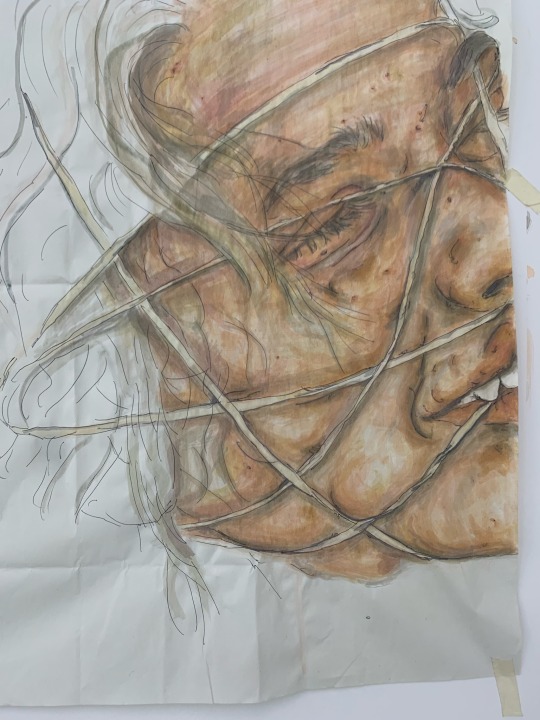
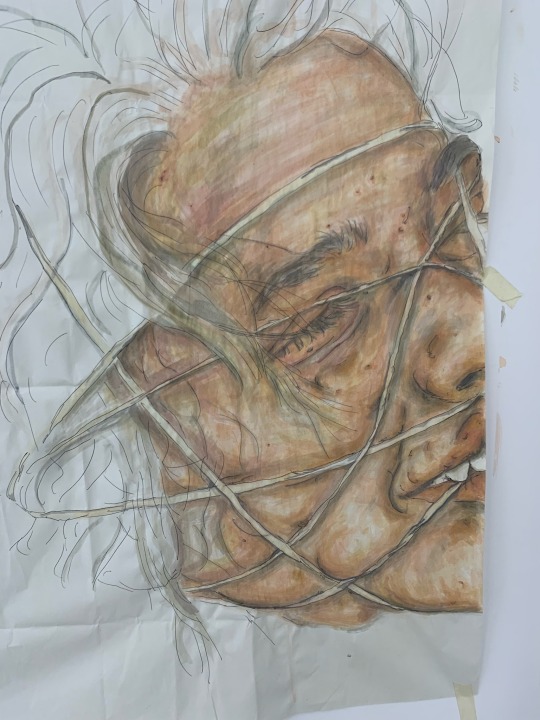
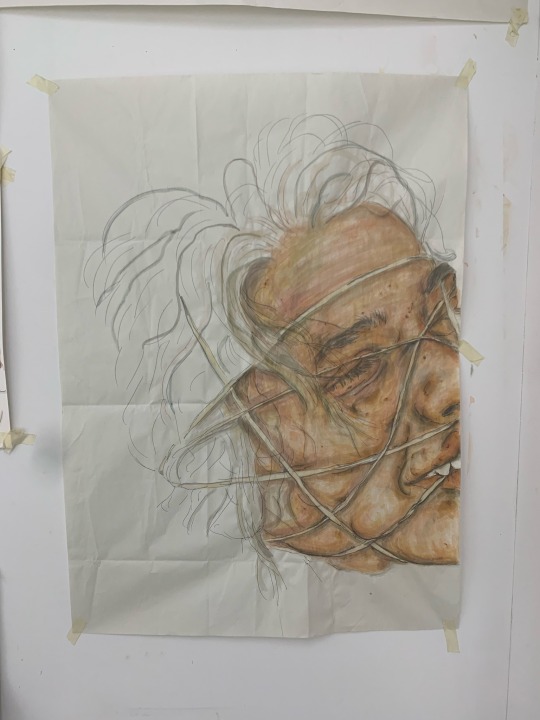
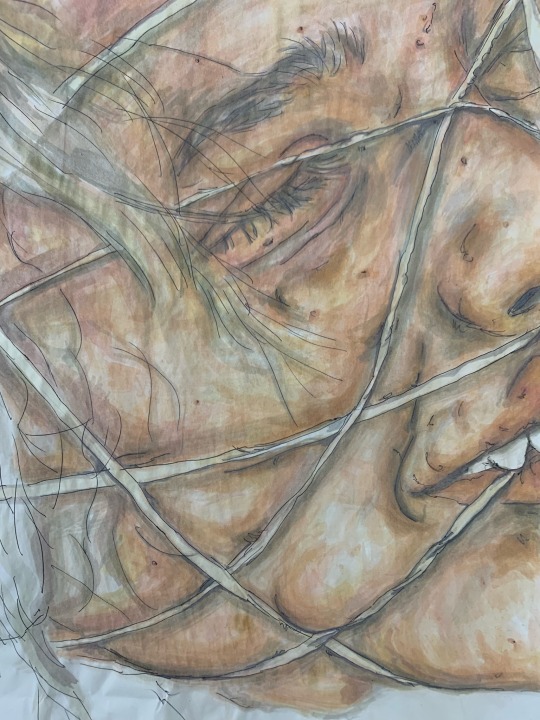
We accept the love we think we deserve
•A1 watercolour•
#artwork#artists on tumblr#drawing#sylvia plath#figurative art#journaling#black and white#acrylic#biro art#painting#watercolour portrait#watercolourpainting#watercolour art#watercolor#contemporary art#new contemporary#concept art#contortion#distorted#sadgirl#sad thoughts#depressing shit#mental health#mental illness#manchester orchestra#brakence#glaive#kanye west#i miss them#i miss him
8 notes
·
View notes
Text
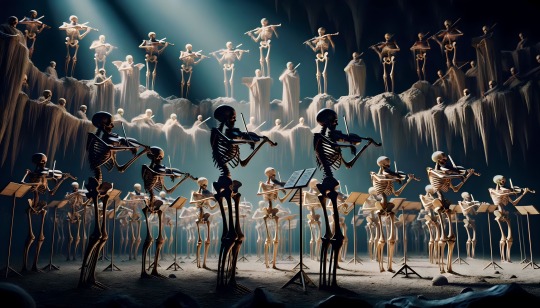
Skeletal Serenade: Bone Orchestras & Ghostly Notes
#aiartdaily#ai art#alien world#scifiart#concept art#scififantasy#alien life#Halloween#skeleton#wraith#spirit#ghost#orchestra#surreal#concept design#spooky#spoopy#eeriecore#disturbing#creepy#haunting#Samahain#shadow and bone#horror
13 notes
·
View notes
Text
Stan Kenton: The Architect of Progressive Jazz
Introduction: Stan Kenton remains one of the most polarizing and influential figures in the history of jazz. His pioneering work as a bandleader, composer, and arranger helped define the “progressive jazz” movement of the mid-20th century. While his approach to jazz was often criticized for being overly intellectual or detached, Kenton’s bold experimentation, innovative compositions, and…
#A Presentation of Progressive Jazz#Adventures in Jazz#Art Pepper#Benny Goodman#Bill Russo#Bob Graettinger#City of Glass#Cuban Fire!#Duke Ellington#Fletcher Henderson#Innovations in Modern Music#Innovations Orchestra#Jazz Composers#Jazz History#Johnny Richards#Journey into Capricorn#Kai Winding#Kenton&039;s West Side Story#Leonard Bernstein#Maynard Ferguson#New Concepts of Artistry in Rhythm#Stan Kenton#Stan Kenton Clinics#Stan Kenton Orchestra#Stan Kenton Plays Chicago
1 note
·
View note
Text
i'd like to propose a new metric of societal development: the Encouragement of Trans Women's Power Metal Concept Albums Metric (or ETWPMCAM). where the ideal society as measured by the metric spares no expense to ensure that the maximum possible number of trans women get the opportunity to write at least one power metal concept album of at least 40 minute duration, which may or may not end up with a couple tracks that are a bit mid but which, regardless and nevertheless, must charm with their shocking earnestness. and i mean the maximum possible number of trans women. i'm talkin public housing. i'm talkin arts grants, music libraries, orchestras at full readiness. i'm talkin free public canteens open at whatever godawful hours the creative processes stalk in. i'm talkin hrt free over the counter, dedicated DON'T DIE WONDERING propaganda campaigns.
if the trans women decide that the concept needs more albums to fully explore then that's good but that's a different metric. if multiple trans women contribute to the same power metal concept album then that's also good but if any of them don't help with the story or at least name one of the princesses then they're still on the hook for their own power metal concept album. thank you. we have a long way to go.
493 notes
·
View notes
Text

It's the (past couple) year(s) of the magical girl!!!!! So happy that we've gotten so many new magical girl properties that aren't just remakes, Madoka-likes, and Precure (DISCLAIMER: I love most of those too!!! I just crave variety...)
Just me talking about these series under the cut:
I LOVE Magilumiere's framing of magical girls as a profession including the nitty gritty details of job searching and corporate events. I buy all the manga volumes as they come out and can't wait for season 2! (Manga spoilers: the OG Magilumi uniform is cute, but I LOVE the V2!!!)
Acro Trip is very endearing and the VAs give 110% even though the actual animation is a little limited... I'd love season 2, but I very much doubt it'll happen... I'll probably pick up the untranslated manga since it's only 5 vols.
Magical Girl Dandelion is SO PRETTY!!!! Love the dynamic of Tanpopo and Shade, esp. since I think the author confirmed it will NOT be romantic? Always interested to see more non-romance-centric shojo. The horror vibe is fun! Love when mg stuff can get a little dark without going full edgelord and losing the soul of the original concept of the genre... Waiting to see if there'll be a physical release since it's about at a volume's length now.
Princession Orchestra looks cool so far, although I have no idea what kind of tone they'll shoot for. There's kids toys, so maybe more Precure than Symphogear, but who knows? I was wondering how the unique shading style of the promo art would be translated to the actual show, and it turns out the answer is..... it's not!!! The actual designs (still very sharp imo!) are just kind of a normal anime style.
And finally, Pretty Pretty Please I Don’t Want to be a Magical Girl by @kianamaiart! The concept of using magical girlhood to look at burnout and the pressure to keep at something due to "talent" is interesting to me. Maybe a little bit of a Shattered Starlight vibe?? Anyway. The artstyle is REALLY cute, and even just from what's been posted so far I love the character dynamics! Looking forward to the pilot and whatever may come after!
#Kana Sakuragi#Magilumiere Co. Ltd.#Magilumiere Magical Girls Inc.#Princession Orchestra#Princess Ripple#Minamo Sorano#I Don't Want to Be a Magical Girl#Aika Star Guardian#Acro Trip#Berry Blossom#Kaju Noichigo#Magical Girl Dandelion#Tanpopo Ohanami#Shade MGD#Spectra Art#Spectra Port
485 notes
·
View notes
Note
Sorry people are being hostile in the notes of your recent AI post! Your points are really interesting and I hadn't thought about it like that (referencing the "..."it's theft" isn't a good argument when much of the greatest art to ever be made is also largely theft" part)
I agree with what you're saying about theft/ creative use of someone else's stuff (or even un-creative use of someone else's stuff, looking at John Williams fully ripping off Holst in the imperial march)
But something about generative AI still rubs me the wrong way though (re: taking people's work), and your comparison has made me question more specifically what it is that I'm uncomfortable with. I think it's the lack of intentionality behind the theft? Coming at this as a composer, if someone stole like, a melody I wrote, I would be happy that they had thoughts & ideas about the thing I made & interested to see what they did with it. I think the thing about generative AI that I don't like (on a personal level) is the lack of intentionality, like, both not knowing if my work had been fed into the training data + if someone rips me off it wouldn't be a choice they made specifically, but just a thing that mysteriously happened.
Idk if I'm making much sense, I'm not really engaged with the online discourse about generative AI because (from the bits and pieces that I've seen) it's a lot of people getting really angry and shouting the same x5 things at each other, rather than like, a discussion.
Anyway sorry for rambling, I appreciate your perspective! hope you have a good day! ♪ヽ(´▽`)/
Yeah, this is mostly where I'm at as well. Even purely secular people tend to invoke the concept of a "soul" when talking about "AI" art, and I'm pretty sure this is what they mean. Soul as in aggregate experience, perception, taste. People want copying in art to communicate something, they want to consider another human's notions of beauty and ugliness. That's why I describe it as modernist, it extricates taste. It copies accidentally with no bridge to the source, not even an implied one. I compare it to generative art a lot, but even that doesn't really reach the level of randomness and diversity of output as these image synthesis engines do. Morton Feldman's pieces still exist within the formal framework of orchestra, after all.
448 notes
·
View notes
Text

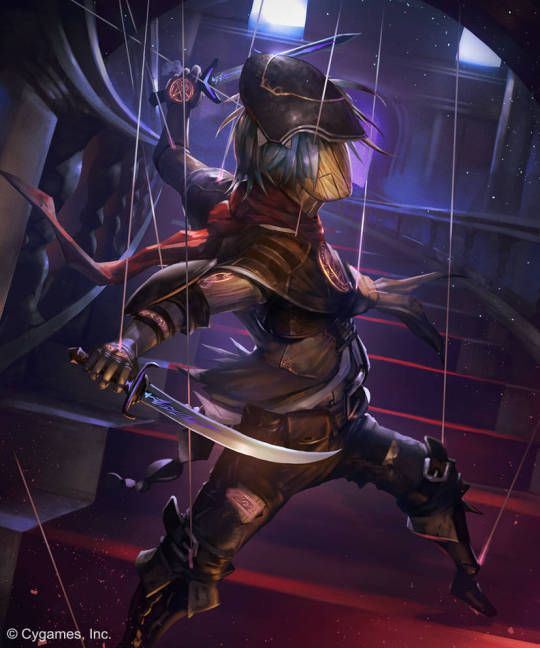
Dungeon: Murder in the House of Dolls
Art 1, Art 2
Though once the prize project of a master artificer famed for bringing joy across the land, the Lyrebird theatre now moulders in obscurity, its once wondrous hall now a place where strange things lurk unseen.
Adventure Hooks:
A body turns up in the party's home city, a tattooed man dressed in antiquated robes like the king of a fallen empire, exanguinated from strange cuts that encircle his major joints. Investigating the tattoos reveals that he was part of a gang that made it's coin "acquiring" things for interested parties by any means. Careful reconstruction of his trail leads to a tumbledown neighborhood frequented by artistic types. Perhaps they can point the investigators in the right direction.
If the party aren't the type to be solving crimes, a fence they know has a job for them: breaking into some boarded up building and stealing some select doohickeys on behalf of a wealthy buyer. Never mind that the last crew she sent in never came back.
Following rumors of strange music playing in the night, or their own need to aquire materials on the cheap, the party might find their own way to the Lyrebird. Sometimes you just need an urban dungeon delve on the quick, yeknow?
Background: It was a brilliant idea in concept, a clockwork playhouse, a scaled up version of music box automata that could play out entire performances accompanied by a clockwork band. In practicality, the system could only be made complex enough to alter between four per-determined plays, and after the novelty wore off no one wanted to see a theatre that could only run the same shows season after season, to say nothing of the stiff performances of clockwork actors.
And so the Lyrebird faded from grand attraction to tourist trap to derelict curiosity. The owners boarded up the building once it was too, which hasn't stopped adventurous youths and enterprising scavengers from sneaking in to take trophies from time to time.
None of this sat right with the spirits of art and wonder that'd come to dwell within the theater in its early days, born from the amazement of those first few years. The show must go on, and with a little encouragement from a fey-curse newly levelled against all the artificer's creations, the spirits got to work staging new performances of their favourite productions... even if they have to get a bit creative when it comes to replacing the damaged puppets.
Challenges & Complications
Using the marionette performers, the spirits infesting the theatre have been capturing those who break into the playhouse and using their bodies in place of damaged automata. A number of them are dead, as being jerked around on fillaments through dance routines or suspended by them for hours, but a few of the most recent band of thieves are piteously alive and in desperate need of rescue. Breaking them out immediately will see the spirits sending an army of possessed marionettes after the party, so the best course of action might be in staging one of the plays and getting all the victims on set before cutting them down and bolting for the door.
Navigating the mechanical theatre will require the party to venture through the uncanny corridors of the puppet workshop, the precarious pathways of the flyloft, and the deafening clatter of the orchestra pit. Along the way they'll face not only rogue marionettes and the hazards of a derelict building, but also fey mischief like swapping the doors around or costumes waiting in ambush that charm the victim into thinking they're someone else.
Even when the party escape, the Lyrebird theatre isn't done with them. Some time later the party will find one of their allies murdered, the death posed unusually so as to resemble the climax of one of the plays. The wrathful spirits of the playhouse have cobbled together a champion of porcelain, wood, and wire, and sent it out into the city to perform their art before a live audience.
223 notes
·
View notes
Text
Look, it's Zelda OCs out of nowhere!







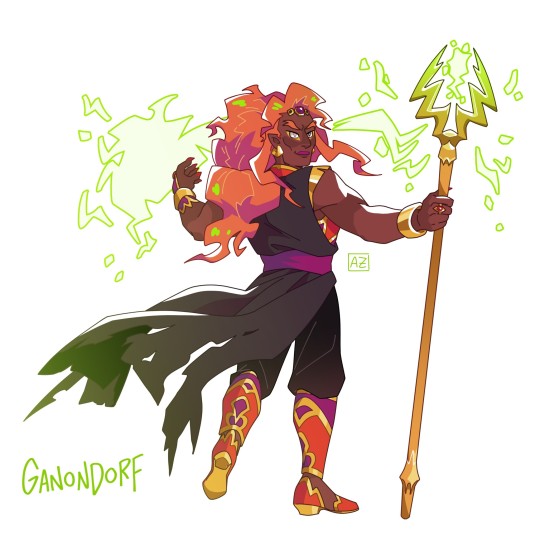
Thoughts under the cut :]
The story/main mechanic is a combination of the companions concept and great fairy sidequest from TOTK, plus the idea of sages playing musical instruments in WW and Link being an orchestra director
Basically Zelda gives Link and Malon the main quest: rectruiting the best musicians of Hyrule to play the sacred song that will open the doors of the temple where the Master Sword is kept
Zelda is the one writing and teaching Link songs every time he comes back to the castle with a new party member. She hides her mad-artist vibe behind the "proper princess" role
Link and Malon are cousins, they grew up in Lon Lon ranch like siblings. Malon is the group's singing voice (and very sweet)
Link is extremely shy and he doesn’t talk much so directing four strong personalities is a bigger challenge than puzzles and monsters for him
They find Forte trapped inside the earth dungeon (he went there to study the art of music but got too scared by skulltulas to leave). He thinks he's better than everyone else, but he's not a bad guy. Clarinet player
Riff is the Zora prince but prefers playing in his band rather than listening to his mother. Annoying little shit. Drum player
At first Neuma refuses to join them but agrees to help when she finds out they're trying to stop Ganon. She used to be a memebr of the Council of the Seven in Gerudo Town but left for mysterious reasons (may have something to do with Ganon). The stoic type. Lotar player
((This is a good moment to say my music knowledge is near 0))
Imagine growing up in a community where everyone says you're different from them but you don't feel different. Imagine them convincing you that you're special. Imagine your mother saying you're destinied to great things. Then the Council declines your application. But you want power because You Are Special. Yeah it's Ganon's villain origin story
He obtained dangerous magic in questionable ways to get the power he craves
#zelda#legend of zelda#loz#zelda oc#my art#they're artists so they're all a bit Insane#i love them dearly#two words: tentacle mullet#melody of unity#(just in case this becomes a recurrent au)
281 notes
·
View notes
Text
@clingyduoapologist made a really cool “what if DSMP were a stage play” post and basically the instant I saw it I was struck by the muse but I don’t want to just chain reblog the dang thing or make one huge reblog with all my thoughts so instead here are all my thoughts on this concept
i don’t think it’s a musical. I think the tone of the story doesn’t fit. But if it were, it would have a Lot of scenes of unsung dialogue, and that dialoge? Would be rhythmic poetry. It’s Shakespeare Appreciation Time baby.
i do however think there would be a live score and an orchestra. A lot of the music would need to be recorded but there’s at least be a few musicians.
different characters speak in different poetic styles at different times to communicate character and plot development.
to elaborate on that: Characters switch from loose ABBA or ABAB rhyme schemes and vaguely rhythmic meter when chatting back and forth to strict perfect iambic pentameter for tense scenes or political speeches.
Techno speaks exclusively in unrhyming dactylic hexameter, an extremely common poetic form for Greek and Latin poetry. It’s what the Iliad was written in. This has the interesting effect of making Techno sound, at first glance, unpoetic. His speech doesn’t rhyme, and doesn’t follow a common English rhythm scheme, so it wouldn’t immediately register as structured. However, dactylic hexameter is actually significantly harder to write in English than expected because of our syllable stress patterns. Speaking like that would be, objectively, a sign of extreme intelligence, but could easily be overlooked as coarse uncultured behavior.
Techno’s chorus - composed of audience members, background extras, and people (in safety harnesses) sitting in the theater rafters - speak largely in Greek and Classical Chinese, quoting sections of the Art of War and Homer’s work. The major exceptions to this are ‘Blood for the Blood god,’ ‘no,’ and ‘do it.’ They all wear a hat or some form of headband that has a glowing LED eye, hidden, but activated when they speak. The audience plants are all in dark clothes, and when the lights go down they don medical masks/sunglasses. Anything to obscure their faces.
The Chorus, a group of robed masked people who broke the fourth wall and often entered the audience, was a vital part of early Greek theatre. I am an intolerable nerd, and the thought of sitting in a dark theatre only to hear an low distorted voice beside you start to comment on the play as a whole choir of voices echo around you, then turning to see your seat neighbor is a masked person with a glowing red eye in your forehead? Literally incredible.
Dream is the only character dressed in even remotely modern clothes.
Dream is first seen as someone (again, in modern clothes) sneaking around backstage in a black hoodie: most of the audience probably assumes he’s a stagehand and not meant to be seen. Then, at some point, he moves from behind a set piece and enters the scene as an actual character, revealing his mask.
interestingly, this is really similar to what I believe is a bit of myth about why ninjas are dressed in all black in modern media. They wouldn’t have been irl, they would’ve dressed like civilians. But stagehands in Japanese theatre would dress in all-black, and were often completely visible onstage moving sets - it was common courtesy to ignore them. Then one day some playwright had the brilliant idea of having one of the stagehands enter the story as an assassin, and suddenly every actor in all-black was a threat. For the life of me I can’t remember where I read that but it’s a cool thought :D
Dream canonically can interact with set pieces, lighting, and curtains.
Dream actively directs lighting in scenes he is not in, sitting above the stage kicking his feet.
Dream is often used to hand off props to characters instead of having them pull them from a pocket and pretend they were pulled from their ‘inventory.’ This begins to get confusing when Dream is acknowledged later on as the he person giving, say, TNT to Wilbur, or wither skulls to Techno.
characters address the audience as ‘Chat,’ (English’s first fourth-person pronoun my beloved) almost constantly, especially for comedic purposes- most of their monologues are addressed directly to the audience as well. For Wilbur, it’s a sign of instability when he stops addressing ‘Chat’ and start addressing the sides or back of the stage.
philza enters from the lower audience, right by the stage, probably after pooping up from the orchestra pit and taking a reserved seat halfway through so no one sees the wings.
Tommy has by far the least structured or rhyming dialogue - if it weren’t for how carefully crafted it was it would sound like normal prose.
Tommy speaks to the audience by FAR the most. Wilbur only addresses them when soliloquizing. Techno barely addresses them at all: they address him. Ranboo speaks to the audience only when alone, and it’s usually phrased like he’s writing in his memory journal. Tommy speaks to the audience at first like a loud younger brother. As he gets older, it sounds more and more like a plea for help, a prayer for intervention that will never come. Exile is one long string of desperate begging aimed our way.
Tommy stops speaking to the audience so much after Doomsday. He starts again when Dream is imprisoned. He stops for good when he dies in there, beaten, alone.
Sam and the Warden are meant to be played by different actors, ideally siblings or fraternal twins. They wear identical stage makeup and costumes, but the difference is there. None of the characters acknowledge this.
the Stage would need to be absolutely massive and curve almost halfway around the central audience, largely because it should be able to be split at times into two separate stages to show different things happening at the same time. This could possibly also work if there were two stages, but getting people to easily turn from one stage to the other without loosing sight of what was happening would be rough.
Doomsday taking advantage of the scaffolding in the rafters and using them as the ‘grid’ for the tnt droppers.
actual trained dogs for Doomsday my beloved. Would cost a fortune but could you imagine.
the entire revolution arc ripped off Hamilton, we all know that, I think we can afford to have a stagehand step forward in that frozen moment in time when Tommy and Dream have that duel, grab the arrow, and carry it slowly across the stage right into Tommy’s eye. For morale.
throughout the execution scene Techno keeps slipping out of poetic meter, especially when he sees/is worried about Phil. After the totem (which would be freaking amazing as some sort of stage effect with like lights and red and green streamers or smthn dude-) he stops speaking in poetry. The scene with Quackity is entirely spoken dialogue. Chat is silent. It’s only when he gets back and sees evidence that his house has been tampered with that Chat starts up again (kill, blood, death, hunt, hunt, hunt-) and he starts speaking in rhythm again.
Every canon death, Dream marks a tally on something in the background. Maybe it’s in his arm? Like a personal scorecard. Or maybe it’s on the person themselves, a little set of three hearts he marks through with a dry-erase marker or something.
phil and techno have a lot more eastern design elements and musical influences than the rest of the cast, except for Techno’s war theme which is just choir, bagpipes, and some sort of rhythmic ticking or thumping. Phil’s also got a choir sting but it’s a lot harsher, the ladies are higher and them men lower, and the chords are really dissonant (think murder of crows)
Tommy’s theme has a lot of drums, but its core is actually a piano melody. The inverse of Tommy’s theme is Tubbo’s, but Tubbo’s is usually played on a ukulele. Wilbur is guitar, obv, and Niki’s is on viola.
Quackity is a little saxophone lick. He and Schlatt both have a strong big band/jazz influence.
None of the instruments that play dream’s theme play anywhere else in the music. I’m thinking harp, music box, and some kind of low wind instrument.
#I have more thoughts but apparently there’s a character limit on lists or smthn it wouldn’t post if it were longer :/#molten rambles#technoblade#mcyt#philza#dsmp#theatre#musical theatre#Shakespeare mention#tommyinnit#dream#wilbur soot#dream smp
119 notes
·
View notes
Text
Lost Trio Week- Day 4: “Band”
@lost-trio-week

Do we have any official art on what the Valdezinator is supposed to look like?? This is what I came up with based on description, and what I could adapt from reference pics of other instruments.
Jason plays violin in my mind. I took the concept of “I’ve been forced to present as a perfect person since birth and never got to choose who I wanted to be” from growing up in CJ and manifested that into an instrument- no offence to Violinists I could never do what y’all do. Piano also works, but Jason is a violin guy in my mind. He actually does love it though, getting lost in the music gives him an escape because gods knows he needs one.
Contrast that with Thalia, who isn’t shown here but imo plays bass guitar. Both string instruments with wildly different functions/techniques/aesthetics. Also rep-ing the bass girlies!! (I play bass)
Piper is canonically a great singer, and so she definitely fits this role.
Do their instruments match at all? No. But I’ve been in these sorts of bands/orchestras, where they’d just take who they can get and make it work. Their band is called “Piping Hot!” And as of right now, they only know Chappel Roan covers.
Not my best drawing- I don’t think I got the colouring quite right- but I like it.
#lost trio week#the lost trio#the lost hero#percy jackson#pjo#pjo fandom#pjo hoo toa#percy jackson fandom#percy jackson and the heroes of olympus#pjo hoo#heroes of olympus fanart#jason fanart#leo fanart#piper fanart#hoo fanart#pjo fanart#percy jackson fanart#leo valdez#leo pjo#leo valdez pjo#pjo piper#piper pjo#piper hoo#jason pjo#jason grace#pjo jason grace#pjo leo#piper mclean#jason grace hoo#poppitron360’s twelve fics of christmas
61 notes
·
View notes
Text





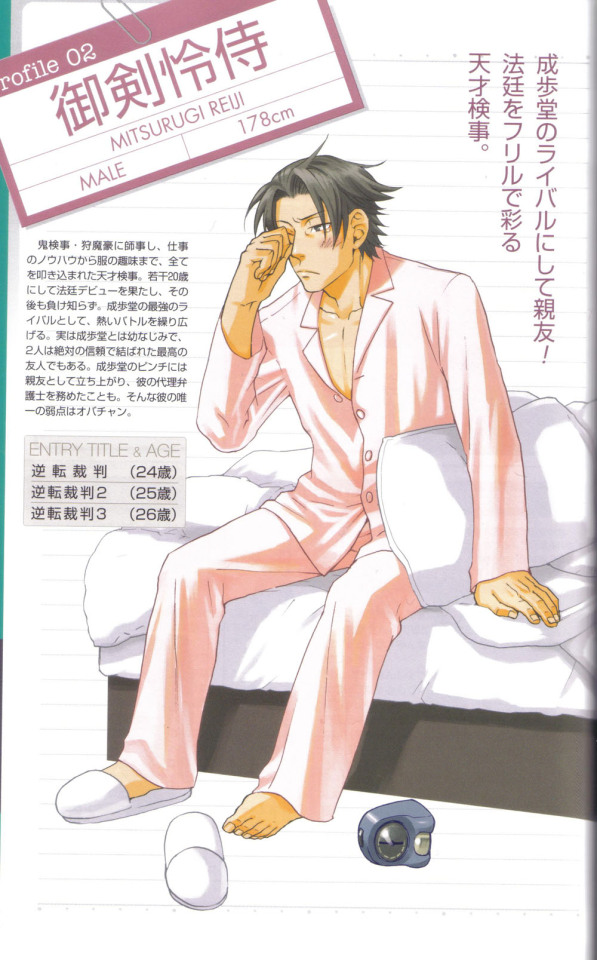






#miles edgeworth#ace attorney edgeworth#aa edgeworth#ace attorney#aa#pwaa#phoenix wright ace attorney#gyakuten saiban#phoenix wright#ace attorney investigations#ace attorney trilogy#ace attorney miles edgeworth#aa miles edgeworth#edgeworth ace attorney#miles ace attorney#reiji mitsurugi#mitsurugi reiji#ace attorney trials and tribulations#phoenix wright trilogy#aa trilogy#aa trials and tribulations#professor layton#professor layton vs phoenix wright#professor layton vs ace attorney#plvspw#plvaa#plvpw#aa investigations#miles edgeworth investigations#aai2
282 notes
·
View notes
Text
Poll Stealing: How it works
PLEASE BE AWARE THAT POLL STEALING SUBMISSIONS CLOSE *AFTER* POLLS HAVE EXPIRED - PLEASE CHECK OUR PINNED POST FOR THE PRECISE DEADLINE FOR THE CURRENT ROUND!
(concept and rules inspired by/shamelessly lifted from @hbowartournament - if you're in that fandom go and show their polls some love and maybe commit some theft over there too!)
For all steal works regardless of type, please ensure that you follow these submission guidelines:
Make a new post here on Tumblr including either your fanwork or a link to your work on the relevant platform (AO3, Spotify, etc.) and tag it #lmss steal
@ mention this blog (lesmisshippingshowdown) in your caption.
Send us an ask or submission (we are not able to open DMs on this blog unfortunately - blame Tumblr!) with a link to your post. If using asks, please be sure to break up the hyperlink to reduce the chance of Tumblr eating the post.
Now on to specific scoring guidelines for different fanwork categories:
Writers:
Post a fic (or new chapter) of at least 100 words to AO3. The pairing of your choice must be the primary relationship tag (and remember this poll is for romantic relationships only)
Link your fic here, tag it #lmss steal, and send us a link to the post. If your piece is part of a larger, previously established fic, please include in your message the word count of the new chapter.
Earn 0.1% for every 100 words, rounded to the nearest hundred
Artists:
Post your fanart to tumblr, tag it #lmss steal, and send us a link.
Earn 0.1% for a sketch, 0.3% for linework, and 0.5% for a full colour piece*
*(full colour is an ambiguous term, but the intent is to look at the extra amount of work and time that goes into colouring a completed piece vs. just putting forward a sketch or b&w linework. a sketch that happens to use colour pencils or a linework with a colour filter overlaid will be judged in the lower category)
Fanvid Editors:
Post your video to tumblr, tag it #lmss steal, and send us a link.
Earn 0.3% per 10 seconds for an AMV/fanvid using existing footage, and 0.5% per 10 seconds for an animatic.
Photo/Gifset Editors:
Post your photoset/gifset to tumblr, tag it #lmss steal, and send us a link.
Earn 0.1% per edited photo and 0.5% per gif/collage.
Playlist Curators:
Post your fanmix - consisting of at least 8 tracks (iykyk) - to Spotify (please create a YouTube mirror playlist if you do not have a Spotify account).
Link your playlist here, tag it #lmss steal, and send us a link to the post.
Earn 0.1% per 8 songs on the playlist, rounded to the nearest 8
Earn 0.1% per 200 words of liner notes (not including song titles or extended lyric quotations)
If you create your own cover art, the points for the relevant visual medium (art or photo editing) apply.
Songwriters/Composers
0.1% per 10 seconds for original music/arrangement with 1-2 instruments (e.g. a piano solo, a pop song where you accompany yourself on guitar, a work for violin & piano accompaniment)
0.3% per 10 seconds for original music/arrangement for chamber ensemble/small band of 3-8 parts (e.g. a string quartet, an SATB choral work, a song performed by you and the rest of the 4 piece rock band you’re in)
0.5% per 10 seconds of original music/arrangement for a large ensemble of 9+ parts (e.g. a work for orchestra or marching band)
0.1% per 100 words of lyrics (entirely original or parody)
0.1% per 200 words of liner notes/analysis
For cover songs, a flat 0.1% per 30 seconds, unless you have provided a significantly new arrangement or orchestration.
Cosplayers/Actors
For modern AU/closet cosplays: 0.1% per still photo, or 0.1% per 30 seconds of video where you are acting/performing in character.
For historical cosplays: a base score of 0.3%, plus an additional 0.1% per still photo, or 0.1% per 30 seconds of video where you are acting/performing in character.
Arts & Crafts (Fibre Arts, Physical Collages, etc.)
Please upload at least one photograph of your completed craft item, and at least one unaltered photograph clearly showing the measurements of your work using a real life reference such as a tape measure or a ruler.
Please also list all materials used in your work (just broad categories is fine - e.g. if you make a friendship bracelet you can just say "string and beads", we don't need to know about every colour and category of bead you used!)
Base rate of 0.1% for works under 10x10cm and 0.3% for works over 10x10cm.
Earn an additional 0.1% per material category (thread, beads, glitter, photo cutouts, etc) - this includes base materials like cardboard, canvas, etc. but does not include adhesives such as tape or glue unless you are using e.g. washi tape or glitter glue in a way that significantly impacts the overall aesthetic appearance of your work. This will be decided at mods' discretion.
Please note that the size only applies to the surface area of what you actually did - so e.g. if you send a picture of a massive embroidery hoop but only a 5x5cm area is covered in embroidery we will only grant you the 0.1% base rate.
Compilations of the above (zines, comics, etc)
Judged by combining individual components - e.g. if you make a zine that includes 3 full colour art pieces (0.5 x 3), a 300 word ficlet (0.3), and a digital collage (0.5), you'll earn a total of 2.3 points.
Comics are judged by panel, though at moderators' discretion excessively similar panels (e.g. the same artwork with different speech bubbles) or very simplistic panels (e.g. a blank colour background that says THREE DAYS LATER) may be awarded a lower score than more complex panels, or discounted entirely.
If you're struck by creative urges not listed above, just drop us an ask and we can figure out what category it falls into and/or approximate percentage conversion rates if it's something totally new.
Please note that you cannot resubmit a fanwork you have already used as a steal work in a previous round, and steal points will not be carried over between rounds of the tournament!
Finally, please be aware that at the moderators' discretion we can and will discount any fanworks that seem particularly low effort or designed to game the system to earn more points. Works created using generative AI will be immediately disqualified, no arguments.
The goal of poll stealing is not to just Get Points By Any Means Necessary - it's intended to be an opportunity for you to show real world applications of your love for a given ship. Have fun with it, and a little bit of gamesmanship is all well and good, but let's try to remember the reason for the season!
28 notes
·
View notes
Text
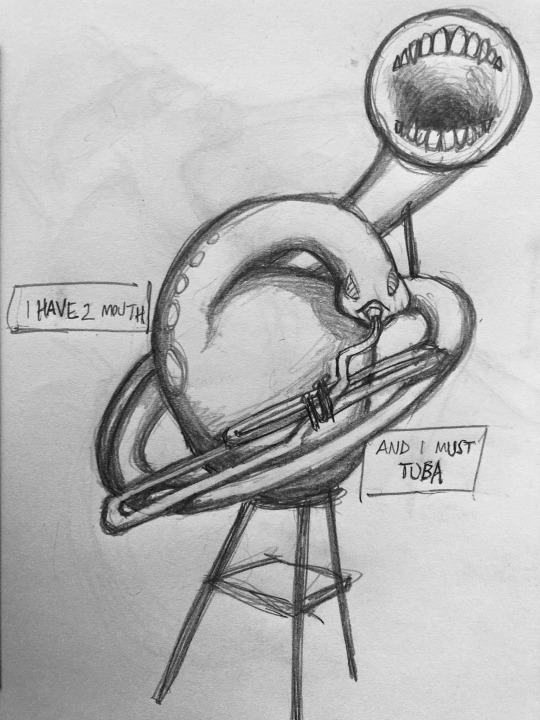
Sorry Francis Bacon, your Figures At The Base Of A Crucifixion are adorable
#artists on tumblr#my art#pencil drawing#concept art#biomechanical philharmonic#francis bacon#fanart#silly art#orchestra#musical instruments#horror art
8 notes
·
View notes
Note
Here's an ask about Agnes and Emmrich that I hope leads to a slutty little drabble: we know Agnes has fantasized about Emmrich, but is the reverse also true? What would that look like for Emmrich? When would it have happened in their relationship: before or after she left? How awful did he feel about it?
*laughs nervously* the short answer is… a lot?? And in the most Catholic way possible??? 4k+ below the cut very NSFW
9:48 Dragon
Though he would never admit it to Agnes, the truth of it was, Emmrich found the opera to be just fine. Catching a performance with Agnes was a lovely way to spend an evening, but by no means did that make Emmrich himself any kind of aficionado. It was Agnes’ avid interest that first brought him to the theatre, and Agnes’ continued fervor that kept him coming back: he went, not to see a performance, but to see her —so engaged, so happy.
This opera, in particular, he was finding impossible to enjoy. Agnes had practically begged him to take her to The Marriage of Figaro, and by the title alone, Emmrich had thought it would be innocuous enough. Another light, romantic comedie, like the Donizetti works of which she was so fond.
It was most definitely not that. If the opera was humorous, Emmrich found it to be a dark, almost sadistic kind of humor. The plot centered around the titular servant Figaro and his bride-to-be, Susanna… and their escalating attempts to prevent the master of the house, Count Almaviva, from asserting his droite de seigneur. Emmrich could not fathom how it was that Agnes could so breathlessly throw herself into a plot that all too well reflected what little he knew to be true of her own conception; of the cruelty and the violent torments Agnes’ mother had suffered at the hands of her father. And yet, she seemed unperturbed.
As if that were not bad enough, he could not help but feel (irrationally, of course) that the entire premise of the opera was pointing an accusing finger directly at him. Agnes was not his servant, of course—she was far more than that—but he could not help but feel that his longing for her shared a similar, lecherous undertone to Almaviva’s licentious pursuit of Susanna. Certainly he held professional power over Agnes, as the Count did Susanna; the fact that he was often reluctant to wield it did not wish that fact away. And just like the Count, his advantage of age he held over Agnes was… considerable.
And so, by the second act of the opera, Emmrich had more or less mentally checked out of the performance entirely. Pleasant as the music may have been (when it was not pulsing, throbbing, thrumming with anxiety; imminent danger; repressed sexual desire) Emmrich found his eyes wandering across the theatre: at the orchestra playing below, at the audience seated at the level of the stage, at the wide balconies where even in the dim performance light he could make out figures packed in the seats. He had never been a particularly devout man, but sometimes, when the mood was just right, being in the opera house reminded him of the most peaceful moments he’d ever spent in a Chantry. He would give Agnes that: there was something special about all these people—strangers—gathered in the dark, assembled in the worship of a great piece of art. It was peaceful, to look upon all those dark faces. Something almost holy about it.
Which made what Emmrich saw next all the more upsetting.
As the adolescent servant Cherubino took to the stage, preparing to sing his invented love song for the Countess Almaviva (with whom, Emmrich had gathered, he was hopelessly infatuated), movement drew his eye to the theatre box opposite his, on the lefthand side of the stage.
At first Emmrich blinked, resisting the impulse to shake his head—surely he was seeing things? Were they—? They couldn’t be—! And yet, they were: cozied up in a balcony box all to themselves, a young woman had snuck her hand into her companion’s lap and, by the white flash of her arm in the dim light, Emmrich could tell she was pumping that hand up and down quite enthusiastically. Though her date had taken care to conceal his lap from view by fanning his performance program wide across his legs, it was all too clear exactly what was going on from the open-mouthed, slack expression on his face and the way he was tilting his head back against the chair.
This late in life there was not much that could still shock him, but Emmrich’s jaw fully dropped. At first he merely sat there, stunned, staring… before his senses returned to him, and he snapped his eyes (wide with disbelief) back to the action on the stage, thoughts an absolute whirl. What should he do? Agnes’ attention was fixed on the stage, deeply engrossed by the drama unfolding (though he still could not really understand why); he did not want to draw her focus to the absolutely debased act that was happening just across the room. Should he excuse himself? Rise from the box and alert one of the theatre’s ushers? Was this even something they were trained to deal with?
Perhaps they had stopped; perhaps he had imagined it. But when Emmrich let his eyes slide, as innocuously as he could manage, back to the opposite box, he saw not only that their public affair failed come to a conclusion, but that the man had thrown his arm around the woman’s shoulders, and was rather obscenely squeezing at her breast over her bodice.
´Andraste have mercy!’
Never in his life had he witnessed such indecency, and as one of the most senior members of the Mourn Watch, his presence had been requested at some extremely indecent parties hosted by the noble class. His face was burning with shock and embarrassment. Trying to get ahold of himself—hoping that if he ignored it for long enough, they would cease or (Maker’s breath!) reach the natural conclusion of such affairs and settle down. He turned back to the stage, watching over Agnes’ shoulder at the scene playing out in the Countess’ bedroom, the teenage Cherubino, all hot-blooded and virile, singing at center stage:
“You women who know what love is, Look and tell me if it is within my heart?”
Truly, they were no better than teenagers, those two nobles in flagrante delicto across the theater. Certainly if he, Emmrich, had endured the past three years of his increasingly inescapable (and increasingly inappropriate) desire for Agnes, they should have been able to keep their hands off of each other for three hours.
And yet, as if summoned, he felt the tickle of those depraved imaginings in the back of his mind. He watched the stage at Agnes’ side, over her shoulder; his eyes slid away from Cherubino to trace the delicate black lace of the blouse she wore over her bodice—the woven pattern of the fabric offering a rare, tantalizing glimpse at the bare skin of her shoulder, her collarbone, her neck… the tops of her breasts, straining against her bodice as she took in the aria with ecstatic, rapt attention.
“Let me tell you what I am feeling: It is new to me, and I cannot understand it. I feel affection, I am full of desire, A desire both delightful and miserable…”
He wanted to brush tenderly at the lock of raven-black hair that had escaped her chignon, curled and coiled charmingly tight by the summer humidity. He wanted to lean in close, to breathe hot against her neck, to take the lobe of her ear between his teeth.
“I sigh and lament without wanting to…”
Intrusive thoughts of what it would be like to pull off his dress gloves, to put his hand on her knee. To draw, slowly, inch by inch, her skirts up over her leg, revealing calves clothed in deliciously sheer stockings, the clips and straps of the garters that kept those stockings secure… to round his hand around her knee, for fingertips to creep past the band of her stockings and along the soft skin of her thigh…
“I tremble and I throb without knowing why…”
…and climb higher. To find her swollen? Wet, already? Slick with anticipation at the promise of his touch—
—and at once, the sudden, mortifying tightness in his trousers brought Emmrich back to reality. He pulled the inside of his cheek between top and bottom teeth and bit down hard, trying to anchor himself with the pain and will away his arousal. Agnes, thank the blessed Andraste herself, kept her eyes glued to her opera glasses; she did not turn to see, and so he did not have to excuse, the flush across his cheeks and his ears, nor the far more conspicuous evidence of arousal tenting his trousers.
He did not know what would be worse: if Agnes assumed, rightly, that it was her own presence that had pitched him into the throes of desire, or if she assumed, wrongly, that it had something to do with Cherubino, a woman in men’s clothes playing as an innocent, virgin, teenage boy on the stage below them.
“Though I find peace neither day nor night, Still, I cannot get enough of the feeling.”
Inconspicuously, taking a queue from the deviant across the theatre, Emmrich laid his paper program over his lap. Focused his eyes on his hands. Picked idly at his nails, willing away his desire.
Knowing pettily, venomously, that if he happened to encounter the couple in the opposite box on his way out of the theatre that evening, he would do everything in his power to trip them on their way down the opera house steps.
But of course, in the sudden throng of activity as the curtain fell and the theatre emptied, the offending exhibitionists were nowhere to be seen. Probably gratifying themselves further in the powder room, Emmrich thought with disgust (and though he would never admit it to himself, even under pain of torture or death: envy.)
He wanted nothing more than to get back to the Necropolis, to put the evening and the terribly obvious handjob and horny little Cherubino behind him. But when Agnes threaded her arm through his and tugged him towards the champagne bar, he was as incapable as ever of refusing her—though he almost certainly should have. Though he knew it was ill-advised, he tried (and failed) to put the memory behind him with drink. By the time he had finished his second glass, Agnes was still sipping politely at her first.
But all the drink in the world could not break the spell of her beauty. In the walk from the opera to the bar, more tendrils of hair had shook loose from her bun, and the flyaways curled like tender pea shoots around her head. He loved her most like this, he thought, when the facade of perfection and rigor and discipline she worked so hard to maintain began to fall away. His eyes lingered too long on the crimson print her lips had left on her apricot-colored coupe glass.
Desperate to shake himself out of it, Emmrich confided in her, at last: “Nessa, you will not believe what I witnessed at the theatre tonight.”
She lifted her glass to her mouth, and her bright grey eyes met his, full of curiosity and innocence. “What?”
But he was not even sure how to politely say it. He licked his lips, a wry, disbelieving grin tugging at his mouth as he told her at last, “A noblewoman in one of the balcony boxes opposite ours… manually stimulating her companion under the cover of his paper program during the second act.”
Agnes’ eyes widened; she set her coupe down forcefully enough for the glass to clink on the table top, covering her mouth politely as she coughed up the drink she had accidentally inhaled in surprise.
“You saw what?”
A lovely, delicious color was rising in her cheeks, red to match the stain on her lips.
“Should I repeat myself?” he asked, full of dry humor. “Believe me, I was not sure myself, but when he started groping her over her dress that more or less quelled any lingering doubts I had in my mind.”
Agnes lifted her glass to her mouth once more, her eyes boring holes into the table before her. Whispered, lowly, “Andraste have mercy.”
“That’s exactly what I thought!” Emmrich said, pleased to see her scandalized, to have his own reaction to what had transpired mirrored and confirmed. “I mean, really. It would have been perfectly easy for them to step deeper into the recesses of the box, into the cover of darkness where no one could see them. But did they? No, and I do not believe for a minute that is because concealing themselves did not occur to them. I think they wanted to be exposed. To be witnessed, to be seen.”
But as he continued to speak, Agnes’ blush receded. She watched him, too keenly, over the rim of her glass; she was neither as outraged nor as scandalized as Emmrich wanted her to be. Needed her to be, to draw a line: to stand in firm opposition to the Agnes he had all too readily conjured in his mind: the fictive siren that would gasp at his touch, that would part her legs all too willingly for his hand, without regard for the risk, without a care for who might see them.
“It bothered you quite a lot, didn’t it?” was all she asked him, softly, probingly, when at last he had finished his tirade.
He blinked at her a couple of times. His fingertips found the stem of his third glass of champagne, and he spun it back and forth between forefinger and thumb. “Well—yes,” he managed, at last. A terrible, traitorous heat rising in his cheeks, in his ears. “Did it—does it not bother you?”
Agnes only shrugged and offered him an indifferent smile. “I did not see it,” she said, at last, “engrossed as I was in the music. I am sorry, however, that you found it so distracting.”
“You think it was merely distracting?” Emmrich prompted, in a state of disbelief. “Not… not shameful—nor disrespectful? To the performers, to the rest of the audience?”
The blush had returned to her cheeks. With a nervous smile, she confessed, quietly, “Perhaps I am not as disciplined as you.” She was not looking at him now, staring into the fizzing depths of her coupe glass. “Perhaps… I understand how easy it is, to be suddenly overcome. By the music, by… by desire.”
Obscene scenarios clamored for attention in Emmrich’s mind. An arched back, a cry of pleasure—how beautiful she would look, how desperately he wanted to see her overcome, to be the one responsible for bringing forth such pleasure and desire within her—!
Without looking at him, Agnes lifted the glass to her mouth and drained the rest of it in a single sip. Placing the coupe down with something like a grimace, she raised her hand, motioning for the waiter to bring her another. As soon as he did, she took a second generous gulp.
“But enough of that,” Agnes said at last, reasserting her control over herself, redirecting the conversation. “What did you think of the music?” she asked, then teased him: “The parts of it you were not too distracted to pay attention to, that is.”
The music? She was just going to drop that explosively erotic phrase into the conversation, and then she wanted to talk about the music? Emmrich fumbled for something intelligent to say. “I thought the basso who sang Figaro had a very fine voice.”
“Oh, did he not?” Agnes effused; and then she was off, chatting a million miles an hour about everything she knew about that particular Rivaini singer, his training, the roles he had performed in other venues, the lyrical quality of his singing. Emmrich nursed his champagne, happy to simply listen to her as he fought to subdue the heat in his face.
By the time they returned to the Necropolis at last it was late, the halls silent. Agnes had held his arm the whole way back—not, he feared, out of affection for him, but out of concern that he had drank too much, that without her support he might stumble and fall. He had drank too much, which was both embarrassing and most unbecoming. Worse still, the drink had done nothing to dispel the ludicrous fever those idiots in the opera had set in his blood; it had only fanned the flames. When they had reached the door to his bedroom, Emmrich had stopped for a moment, hovered awkwardly in front of Agnes as he debated, then decided against, pressing a grateful kiss to her brow. He did not think, in his current temperament, he could manage to keep it appropriately chaste.
Indeed, as soon as the door had closed behind him and he was left to his privacy, all the intrusive thoughts he had fought in the theatre and the in the bar and on the long walk home returned to him, tormenting him: the light rasp of his nails along the inside of her thigh; the fine hair of her legs standing on end in the wake of those touches; the damp warmth of her smallclothes as he’d push them aside; her anxious little whisper, aroused, anticipatory, cautious: “Emmrich, your nails…” and how he might respond, lips brushing against her ear, “I will be most careful with you.” Throbbing and freezing and burning like poor Cherubino, like a young man a quarter of his age as he imagined her wetness, the slickness of her beneath his fingertips as he circled her bud—
(There was nothing for it now but to see it through. Only one way to truly relieve himself, to exorcise the thoughts that haunted him so at last he could rest. Hastily, inarticulate drunken fingers stumbling over buttons, he unfastened his trousers and dropped onto the edge of his bed.)
—her parted lips, the little hitches in her breath, the pleasure sounds she would try to stifle as (carefully, so carefully, true to his word) he would slip middle-and-forefinger deep into her hot wet heat—
(Ragged edge to his breath like torn parchment as he closes his hand around himself and begins to stroke. Delicious tightness in his core, feet arching against the floor.)
—placing a kiss on her neck. Breathing hotly against her ear. Agnes’ hands trembling, her opera glasses shaking in her hands as her satisfaction builds, mounts; a keening cry; the way her back would snap, her hips driving his fingers into her, grinding against the palm of his hand—her cunt tightening reflexively around him—
(Free hand white-knuckling, twisted in his bedsheets. A gasp and low groan as fist tightens over the slick head of his arousal. It’s rotten, it’s foul, it’s wrong in a thousand ways to imagine her this way—but it feels much too good to stop.)
—would she follow him back after? Rise before the curtain had fully fallen, before the applause had concluded, racing with him back to the Necropolis, creeping into his room? The blush of her face in the champagne bar: “Perhaps I know how easily it is to be overcome by desire.” To hold her in his arms, to kiss her in this room—! Loose the buttons on her blouse and slide the lace past her bare shoulder, bare neck, bare clavicle… lifting her skirts, sinking into her—
(“Hha—ahh! Nessa—!”)
—with her legs wrapped tightly around his waist, her hands clawing across his back for purchase, enveloped in the smell of her, by her warmth… here, in the privacy of the bedchamber, where she would not have to hide her pleasure sounds but could pitch his name upon them like a storm-tossed ship, scream it as she reached the height of her pleasure—
Tension in his body snapping white-hot, shooting sparks through his limbs and coiling in his core, Emmrich held the back of his hand firmly against his mouth to stifle his own obscene, satisfied groan as he spilled into his hand. He came so hard it left his toes curling; thighs shaking; short of breath.
The next day, he did not arrive at their study until nearly noon.
He had woken hungover, head pounding, light-sensitive. But that discomfort was nothing compared to the agonizing guilt and shame that washed over him when he recalled the events of the night prior. Why couldn’t he have minded his own business? He should not have let what he saw in the theater get under his skin; it was inconceivable to him in the sober light of morning that he had thought telling Agnes about it was a good idea. Had he really used the words ‘manually stimulating’? How uncomfortable had he made her? He recalled how quickly Agnes had changed the conversation, cringed at how long he had lingered over it. Fighting through the hangover to shower and shave did nothing to cleanse the pervasive filthiness he felt.
He could not remember the last time he had attended Chantry service—but some habits were difficult to break. Seeking even the slightest reprieve of absolution, he left the Necropolis shortly after dawn, heading towards the Chantry in Nevarra City. But even among the incense and the singing Mothers, he could not escape from his regret, the Canticle of Threnodies echoing among the vaulted ceiling in accusation:
Marvel at perfection, for it is fleeting. You have brought Sin to Heaven And doom upon all the world.
He had something beautiful—a partner to stand by him, to protect and care for him—and he was going to spoil it, desecrate it as thoroughly as the Tevinter Magisters of old had corrupted the Golden City of the Maker. Every lurid imagining he indulged in, he knew, brought him closer and closer to doing irreparable harm to the thing in his life most precious to him.
When at last he returned to the Necropolis, Agnes was already in the study, waiting for him. The smell of lavender oil was thick in the air; she must have spent the morning cleaning, a task which he had repeatedly told her she need not take upon herself, and one to which she repeatedly insisted upon undertaking nevertheless. Now she stood at one of the tables with Wilfred at her side, watching him with scrutiny as he clumsily tried to grind down some fresh herbs, his bony hands struggling with the mortar and pestle.
She looked up at him the minute he entered, her bright eyes full of anticipation—and was that a hint of concern?
“Where were you?”
Beaten down by his excessive drinking and shame alike, Emmrich did not have the willpower within him to lie. “In Nevarra City. I attended Chantry services this morning.”
Agnes smiled, like it was a joke. “No, really, where were you? You missed breakfast. I was not sure you’d want to eat after last night, but I saved you a bit of toast, just in case.”
Emmrich took a deep breath, following the slender line of her arm to the table near the hearth, where four slices of toast were stacked on a plate beside an artful dollop of jam and a pat of butter. Though his stomach still felt wretched, he knew eating would probably help. “Chantry services, really,” he repeated, again, in answer to her question, his tone resigned. He walked to the table, tore a slice of toast in half and lifted it to his mouth without bothering with the ornamentation of butter or jam—he did not think his stomach could endure the grease nor the sweetness. “Thank you, dear, for saving me something to eat.”
“Seriously?” Agnes asked. Emmrich did not have to look up to know the look of incredulous disbelief on her face. It was plain by the tone of her voice.
Emmrich chewed through the dry toast, swallowed. His stomach gave a discontented growl, awakening at the prospect of food. “Quite seriously,” he answered at last. “Though I am far from the most devout among the Mourn Watch, old habits are difficult to shake. Every once in a while, it’s like an itch that needs to be scratched.” Not that the debasement and self-flagellation he frequently associated with Chantry service had done him any particular good this morning.
Agnes gave a low huff of amusement. Without needing to be asked—knowing, as she knew him so well, that the toast would go down easier with a bit of tea to help it—she crossed the room, cast iron teapot in hand, and bent before the heart to suspend it over the fire.
“So did it?” she teased him. “Scratch your itch?”
With her back turned to him, she did not see the ugly grimace he made, the way his lips curled into a frustrated scowl at his own lack of discipline. Nor did she see, blessedly, the way his eyes were fixed upon her: her narrow waist, the pert swell of her backside as she bent over the fire.
“No, I’m afraid not,” Emmrich said, tearing his eyes away to stare at his toast. “Not this time.” He recalled to himself the verse from Threnodies, repeated it in his mind, beating himself against it until it obliterated the image of her (legs spread, back arched) that had begun to resurface in his mind:
Those who had once been mage-lords, The brightest of their age, Were no longer men, but monsters.
107 notes
·
View notes
Text
[2025.03.13] Radiotalk: "Profession: Mansai Nomura" March 13 – Notte Stellata 2025 is the Best!
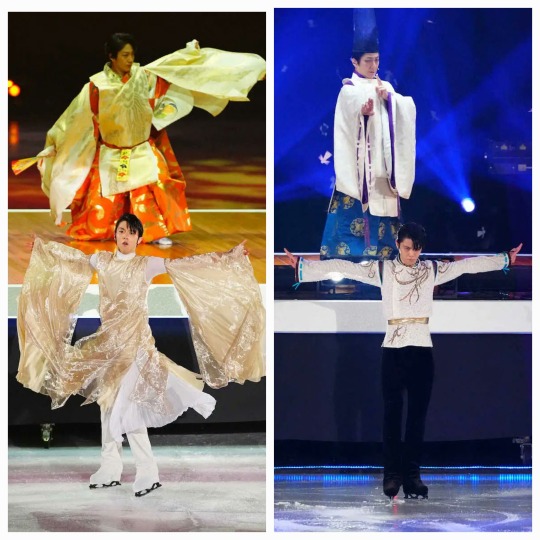
This time, I had the honor of participating as a special guest in Yuzuru Hanyu’s Notte Stellata 2025. Today, I’d like to share my thoughts and some behind-the-scenes stories. So, instead of introducing each message one by one, I’ll just talk about my experiences.
Well, the show has ended, and I’ve received a flood of messages about it. I think it's something that the producers at Nippon Television (NTV) had been planning, and it gradually became a reality, of course with Hanyu's involvement. From the very beginning, it seems there was a thought of "one day, this will happen." The first time, it was Kohei Uchimura, the second was Mao Daichi, and this time, it was my turn. The first guest was a gymnast, then an actress, and now me, a classical performing arts actor. In a way, I think the concept of the performance evolved through these stages.
Without a doubt, the conversation we had from ten years ago became the catalyst for various things. While recalling that experience, I thought about what I could do with Hanyu-san this time, what I could remember, and what I could convey. With all these thoughts in mind, I directed this collaboration.
Since it was my first time performing on an ice skating rink, I wasn’t entirely familiar with how things worked. But after watching the previous two shows, I felt that it would be best not to be too far away, and I also wanted to be as close to the audience as possible, so I made an effort to close that gap. That’s one of the key points. In Bolero, the stage was built at the center, while in SEIMEI, I ran along the rinkside. Well, I didn’t just run, I walked properly as well. The staff referred to the small protruding stages as ‘debeso’, and I believe there were four... No, actually, three of them. Small, island-like stages were set up on both the long and short sides of the rink, where I could perform. I carefully considered my performance space and how to integrate it into the skating show, drawing on the wisdom of everyone involved.
I have always performed Bolero as a solo dance, sometimes accompanied by an orchestra and at other times with the support of 40 members from a Japanese dance company. However, this time, with the strong collaboration of Hanyu Yuzuru-san, as well as Shae-Lynn Bourne-san, Tanaka-san, Mura-san, Miyahara-san, and Suzuki-san, I truly feel that something entirely new was created. Shae-san’s choreography was also highly innovative, and Hanyu-san’s presence played a significant role in bringing everything together.
Speaking of Bolero, I think that Béjart's choreography is influenced by traditional Japanese performing arts, particularly the Bon Odori style. The idea of having a yagura (raised platform) at the center with people dancing in a circular motion around it was something I specifically wanted to incorporate this time. Then, there was the question of how to position Hanyu-san’s presence. I wanted to incorporate the idea of utsushimi (manifestation or embodiment of a spirit or deity in a physical form) while ensuring that it did not overlap too much with the SEIMEI and Shikigami (spirit familiar) concept. To me, it felt like a god and its messenger bird—a phoenix itself. The kariginu I wore also featured a phoenix motif, embodying that immortal bird. In that sense, the phoenix and its 'manifestation' coexisted—that was what Bolero became for me.
The original piece was about 17 minutes long, but we condensed it to roughly half that length. More than anything, this performance carried a strong theme of requiem, so it was necessary to evoke scenes representing the deceased. With that in mind, the other performers—aside from Hanyu-san and myself—incorporated scenes depicting the sudden transition from life to death. I asked whether it was possible to lie down on the ice and for how long they could stay there. We used a black cloth like a blanket, but staying in that position for too long would be uncomfortable, so we significantly shortened the duration this time. I thought it could have been a bit longer, but I believe it turned out well in the end.
From there, we aimed for "rebirth". Since representing the four seasons is a major theme of Bolero, I wondered if we could make confetti fall like snow. In traditional theater, snow is often represented by white paper falling, but since scattering paper on an ice rink wouldn’t be ideal, we looked for an alternative. The staff suggested a solution—something like foam, which could be considered artificial snow, but perhaps it’s better described as foam. Since it would disappear quickly, it wouldn’t affect the rink, making it a perfect choice.
That snow was really wonderful. When I first saw it, I thought it was beautiful. On opening night, when Bolero began, I’m sure some people in the audience may have anticipated it, while others were completely surprised, but the collective gasp when it started was immense. And when the snow fell, there was yet another huge reaction from the audience. I’ll never forget that moment.
We also incorporated various sound effects, such as birds chirping and the sound of rain, while making extensive use of lighting. Day by day, my collaboration with Hanyu-san deepened, so did my synergy with the other five performers, creating the piece together. I took a rather provocative approach, fostering communication through mutual engagement, and I felt that everyone responded to that energy.
As for my costume, we had various discussions, and this time, I chose a red Okuchi-hangiri hakama. Since the performance space was vast, I also added some red highlights to my hair to complement the look.
Now, SEIMEI is the piece from Hanyu-san’s gold medal performance, so I didn’t want to interfere with it too much. However, I also wanted to recall the film (Onmyoji) and our past discussion. Considering that, I used the keyword Tenchi-jin (Heaven, Earth, and Man) and had him appear as a Shikigami. And so, by having him appear as a shikigami, we decided to use human-shaped paper figures as the motif. When those paper figures were cast into the air, Hanyu-senshu appeared, and in the final moment, a large number of these human-shaped papers rained down in a visually striking effect.
Additionally, the four guardian beasts of Onmyōdō—Seiryu (Azure Dragon), Suzaku (Vermilion Bird), Byakko (White Tiger), and Genbu (Black Tortoise)— which also appeared in the film, were incorporated into the performance. I thoroughly enjoyed the process.
Source: https://radiotalk.jp/talk/1287686
#hanyu yuzuru#yuzuru hanyu#羽生結弦#nomura mansai#notte stellata#seimei#bolero#figure skater#figure skating#machine#translation
20 notes
·
View notes